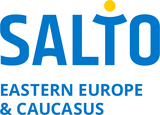Main facts about Azerbaijan
Official Name:
Republic of Azerbaijan / Azarbaycan Respublikasi
Capital:
Baku
Date of Formation:
The Azerbaijan Democratic Republic proclaimed its independence from the Transcaucasian Democratic Federative Republic in 1918 and became the first secular democratic Muslim-majority state, taking its name from the adjacent region of northwestern Iran for political reasons. In 1922, the country was incorporated into the Soviet Union as the Azerbaijan SSR.The modern Republic of Azerbaijan proclaimed its independence on 30 August 1991, shortly before the Dissolution of the Soviet Union in the same year.
The Flag:
 The structural formation of Azerbaijan's political system was completed by the adoption of the new Constitution on 12 November 1995. According to Article 23 of the Constitution, the state symbols of the Azerbaijan Republic are the flag, the coat of arms, and the national anthem. The state power in Azerbaijan is limited only by law for internal issues, but international affairs are also limited by international agreements' provisions.
The structural formation of Azerbaijan's political system was completed by the adoption of the new Constitution on 12 November 1995. According to Article 23 of the Constitution, the state symbols of the Azerbaijan Republic are the flag, the coat of arms, and the national anthem. The state power in Azerbaijan is limited only by law for internal issues, but international affairs are also limited by international agreements' provisions.
The Anthem:
"Azərbaycan marşı" ("March of Azerbaijan") is the national anthem of Azerbaijan. The music was composed by Uzeyir Hajibeyov, with lyrics by poet Ahmad Javad. The government officially adopted the anthem in 1920 with the passage of the decree, "On the State Hymn of the Republic of Azerbaijan."
In 1992, after the fall of the Soviet Union, Azerbaijan's government officially restored "Azərbaycan Marşı" as the national anthem. The government of Azerbaijan has also officially declared the national anthem to be "the sacred symbol of the Azerbaijan state, its independence and unity."
State Organization:
Azerbaijan is a unitary semi-presidential republic.[4] It is one of six independent Turkic states and an active member of the Turkic Council and the TÜRKSOY community. Azerbaijan has diplomatic relations with 182 countries and holds membership in 38 international organizations,[26] including the United Nations, the Council of Europe, the Non-Aligned Movement, the OSCE, and the NATO PfP program. It is one of the founding members of GUAM, the CIS,[27] and the OPCW. Azerbaijan is also an observer state of the WTO.
The Constitution:
The Constitution of Azerbaijan (Azerbaijani: Azərbaycan konstitusiyası) was adopted on 12 November 1995 by popular referendum. This Constitution was the first Constitution of independent Azerbaijan.
Authorities:
Head of the State: President. The president is elected by secret vote for seven-years term.
The Legislative Authority of the Republic of Azerbaijan is implemented by the National Assembly (milli Mejlis) of the Republic of Azerbaijan which consists of 125 members.
Read more about the general information about Azerbaijan HERE
Media:
Most Azerbaijanis receive their information from mainstream television, which is unswervingly pro-government and under strict government control. According to a 2012 report of the NGO "Institute for Reporters’ Freedom and Safety (IRFS)" Azerbaijani citizens are unable to access objective and reliable news on human rights issues relevant to Azerbaijan and the population is under-informed about matters of public interest.
The authorities use a range of measures to restrict freedom of the media within the country. Opposition and independent media outlets and journalists have their access to print-houses and distribution networks limited, or can find themselves facing defamation charges and crippling fines and are subject to intimidation tactics, including imprisonment on fabricated charges.
Radio Free Europe/Radio Liberty which was the only one that ensured political pluralism for its citizens, is banned in Azerbaijan since 2009 Reporters Without Borders has called on the Parliamentary Assembly of the Council of Europe (PACE) to firmly condemn Azerbaijan for tolerating escalating press freedom violations.In 2015 Azerbaijan had the biggest number of journalists imprisoned in Europe and Central Asia, according to the Committee to Protect Journalists, and was the 5th most censored country in the world, ahead of Iran and China.
Activists such as Sing For Democracy and Amnesty International brought up the issues of Azerbaijan's rights as it hosted the 2012 Eurovision Song Contest, after the song Running Scared by duet Ell and Nikki won the 2011 contest (these activists described its title as ironic.)The issues included harassment of journalists, and the organisations met with the EBU on 1 May 2012 to discuss the problems.
Read more about the Media and Censorship in Azerbaijan HERE
 President Ilham Aliyev with the
Minister of Youth and Sport
Azad Rahimov
President Ilham Aliyev with the
Minister of Youth and Sport
Azad Rahimov Heydar Aliyev Foundation
Heydar Aliyev Foundation Oil rigs at the Caspian Sea
Oil rigs at the Caspian Sea Baku Downtown
Baku Downtown
